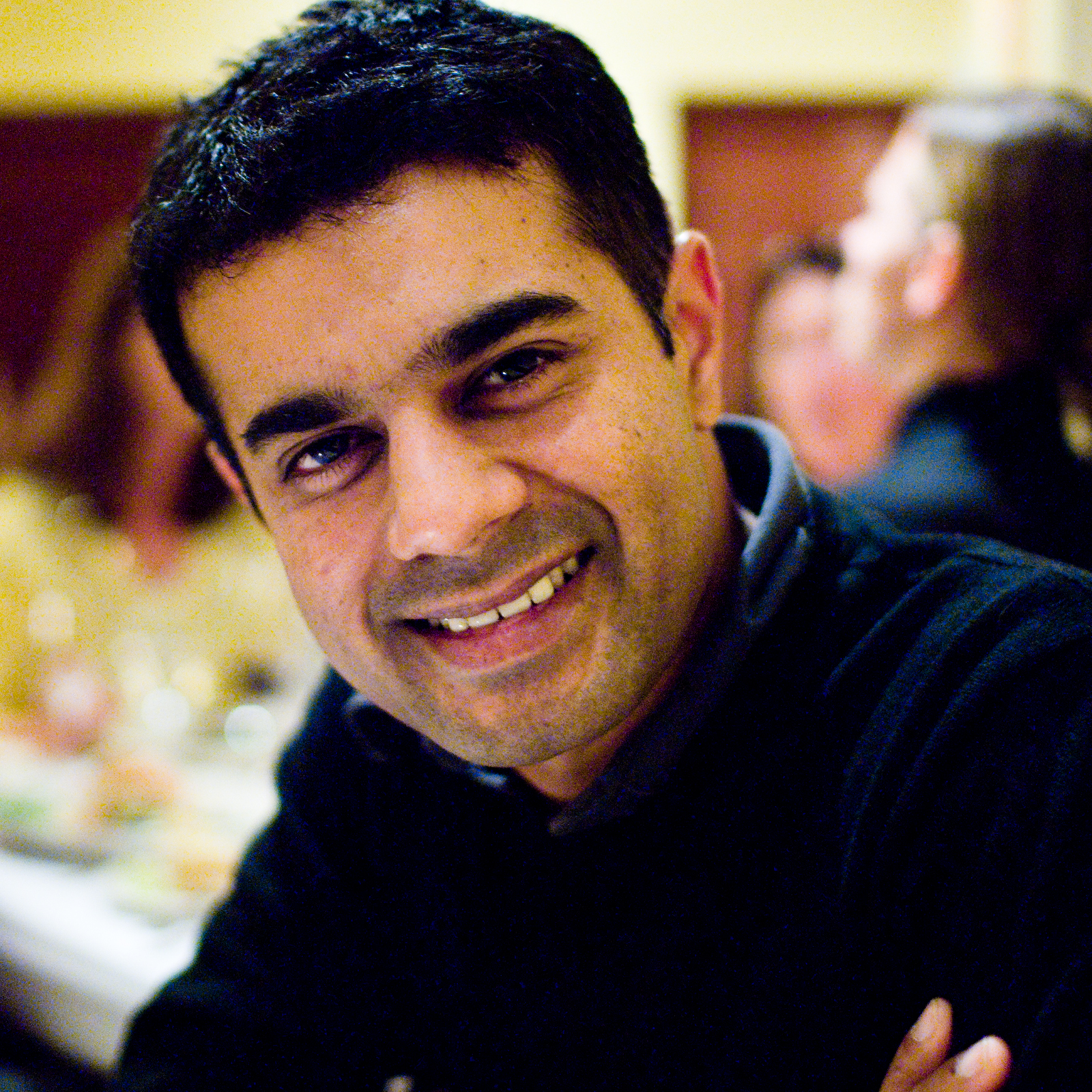
Abstract
The problem of the "semantic gap," - how to resolve sensory data to
meaning, is a familiar and significant challenge within the media
computing and AI communities. Today, a majority of the work in
resolving the semantic gap lies in the learning paradigm, where our
knowledge of the domain is encoded in terms of identification of
effective features and appropriate learning algorithms. This talk
will offer two long term research perspectives to address the
semantic gap, where computational learning is integral, but which
expand the problem space.
| ||
Biography of Hari Sundaram
Hari Sundaram is currently an assistant professor of media arts and
computing, with the Arts Media and Engineering program, and Computer
Science at Arizona State University. He received his Ph.D. from the
Department of Electrical Engineering at Columbia University in 2002.
He received his MS degree in Electrical Engineering from SUNY Stony
Brook 1995 and a B.Tech in Electrical Engineering from Indian
Institute of Technology, Delhi in 1993.
His intellectual commitment is towards understanding how meaning
emerges through our engagement with the physical online worlds. His
research has focused on two complementary (but coupled) directions -
(a) designing intelligent media environments that exist as part of
our physical world (e.g. mediated environments that assist stroke
patients recover) (b) developing new algorithms and systems to
understand the media artifacts resulting from human activity (e.g.
emails, photos / video). Specific projects include - context models
for interpreting human action, understanding communication patterns
in media sharing social networks, collaborative annotation, as well
discovering emergent groups in online social networks.
His research has won several awards - the best student paper award at
JCDL 2007, the best ACM Multimedia demo award in 2006. The best
student paper award at ACM Multimedia 2002, the 2002 Eliahu I. Jury
Award for best Ph.D. dissertation. He has also received a best paper
award on video retrieval from IEEE Trans. On Circuits and Systems for
Video Technology, 2000.
He is an active participant in the Multimedia community - he is an
associate editor for ACM Transactions on Multimedia Computing,
Communications and Applications (TOMCCAP), as well as the IEEE Signal
Processing magazine. He has co-organized workshops at acm multimedia
on experiential telepresence (ETP 2003, ETP 2004), archival of
personal experiences (CARPE 2004, CARPE 2005) and a conference of
image and video retrieval (CIVR 2006).
This website is maintained by Yongyi Mao, and was last updated on April 30, 2008
